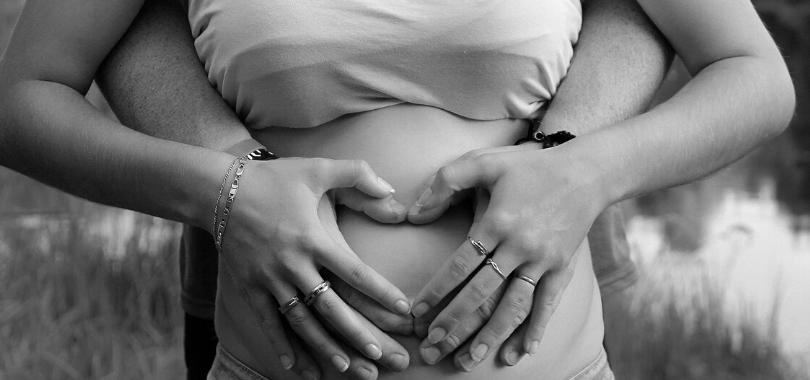I always have a little bit of a chuckle to myself when people call my clinic and try to tell my staff that they know everything there is to know about fertility and that they don’t need to have any other investigations etc, because they have had them all done.
Then when I check, not only have they not had them all done, but the person actually only knows the bare basics about fertility. It is perception versus reality and a degree is doctor google, does not make one an expert. I often have to say to these people that if they really did know everything, then why aren’t they falling pregnant, the truth is generally a reason why.
The truth is, there is generally a reason why, and it is because they don’t know and they actually need help from someone who does not, and someone who is an expert in reproduction.
There is no easy way when it comes to fertility
I wish it was that easy, because that way I would not have had to study to obtain a Master Degree in Reproductive Medicine, done countless hours of clinical research, and done hands on experience over the last 20 or more years to know what I know now.
The truth is, unless you are a fertility specialist, have extra post graduate training in fertility, and actually work in the field of fertility and reproduction, you just cannot know all there is to know about fertility. It would be like me doing a google search on astrophysics, or any other field I am not qualified in, and then saying that I am now an expert because I have done a few google searches. We really need to put all of this into perspective and be real about this. I am all for people being educated, but really, you cannot be an expert without years of study, training, ongoing research and hands on experience.
Doctor Google does not have all the answers
I also know that not everyone in the fertility profession is well qualified either and this is due to the lack of regulation in this profession. But, even so, you cannot just do a google search, or do a few IVF cycles, or get advice from some support page, and then call yourself and expert. Just remember that a lot of the information on Dr Google is actually wrong, or only partially true and that support groups often contain members of the general public, who have no medical experience what so ever. Yet these days, many are taking the medical advice given on these pages and that is absolutely dangerous. I don’t mean for this to sound harsh, because support groups are a great thing, but we need to be real about who and where we get our medical advice from, especially when it comes to fertility.
Fertility is complex with multiple variants
Fertility is not just about putting and egg and a sperm together and it just works. Let’s be real about this. Making a baby is not as easy as our parents and teachers used to tell us. There is a science behind it and it requires the right timing the right conditions and also optimum health of the parents physically, mentally and also genetically.
Age is one of the biggest factors with fertility
Age is also a huge factor. The older we are, the more issues we have with sperm and eggs and the more random genetic and chromosomal errors we get with embryos.
Genetics is very important when it comes to fertility
Genetics is also something many do not understand and something that many overlook. At present I test couples for 180 different genetic mutations , genetic variants and genetic issues that could be affecting a couples chances of pregnancy.
Not to mention Karyotyping to see if the couple is in fact male and female, or don’t have translocation issues on their X & Y chromosome, or other genetic issues such Turners syndrome, Kleinfelters syndrome etc. Then there is cystic fibrosis screening and many other genetic screenings that most people have never had tested and without proper training would not be able to understand how to interpret them either.
Assisted Reproduction
Then we have IVF and Assisted reproduction, which is not as simple as giving someone some hormones, and putting a sperm and an egg together. I wish it was that simple. There are many variants with the whole IVF process that the general public just do not understand and if you don’t know what these are, things can go wrong very quickly. Let’s face it, if you don’t get hormones and everything right, women have died on IVF cycles, or become very critically ill in the process.
The science of embryology takes years of study
We also have scientists who have done years of study to understand embryology and the very intricate details of what it takes to create an embryo. Even when an embryo is created, it does not mean it will go on to become a baby and there are many reasons behind this. This sort of stuff the general public just do not understand and cannot understand with a mere google search.
When an embryo is created, it is then a mixture on egg, sperm and all the chromosomal and genetic variants from the male and female. Many things can go wrong. There can be random errors, there can be arresting of the embryo growth process and then there are also nutrients and so many other factors that are needed for an embryo to just making it to day 5 ( which is called a blastocyst). That is if it actually makes it that far, which many don’t. Regardless of the classification system and grading system for embryos, it does not mean that the embryo is chromosomally viable, nor does it mean it will go on to become a baby.
Sometimes science cannot explain everything
Some technology surrounding embryo quality and viability we just do not have yet. So in essence, one an embryo is formed; it compacts and grows, and then makes it to transfer. What happens after this really is up to chance. Sure, there is a science behind it all, and that science is very intricate and precise, but there is also an element that is “left up to the gods”, so to speak
The same actually goes for natural conception too. It is exactly the same processes really, except it is all done in the body. The only difference is that we do not know if the sperm and egg are actually meeting and forming an embryo month after month. It is a waiting game to see what happens just the same as it is for those doing IVF who also have to wait to see if a transfer is successful.
You need a real degree, not a google degree to understand reproduction fully
There is so much to fertility and conception that many will never be able to comprehend, unless they undertake the study to do so. Even then you need to be doing the actual hands on work on this profession too. There is a huge difference between what one reads in a text book, to what actually happens in practice. It is a marriage of theory, study, research and practical experience that is needed to actually call one an expert in reproduction and fertility.
Education is important, but be careful who your source is
When I say all this, this is not to discourage people from being educated, asking questions and finding out as much as they can on their journey to become parents. Education is important and this is why I do my fertility program, so that couples are educated on everything they need to know about fertility and what is needed to have a baby.
My fertility program covers what no google search every will
In my fertility program and education for couples, I go through everything from medical procedures, genetics, pathology, chromosomes, egg quality, sperm quality, male and female health, gynaecological issues, male fertility issues, surgical interventions, counselling, supplements, dietary and lifestyle changes, diet plans, IVF and assisted reproduction, hormones, medications, complementary medicines, scientific procedures (andrology, embryology, ICSI etc) and so much more that can only be given to couples by multiple degrees, post graduate degrees in Reproductive medicine, and over 20 years’ experience in helping couples have babies.
The importance of seeing a reproductive medicine expert
As I have tried to explain, there really many things that are needed to ensure optimum fertility and better chances of a successful pregnancy outcome. I wish it was as easy as doing a google search and that all answers could be provided. There are lots of underlying reasons that couples are not falling pregnant and this is why it is important to see someone who knows what they are talking about and who is an expert in reproductive medicine. They also need to be appropriately qualified and certified, because the fertility profession is largely unregulated. Like any profession, there are lots of bad practitioners out there too. This is in both the medical and complementary medicine.
Do you your homework, but don’t rely on google
Do your homework on whom you are thinking about going to see, but please remember that your google search does not make you an expert. Google does not have all the answers when it come to the very complex and intricate details of the world of fertility and reproduction. Please see someone who is trained properly, who has years of experience, who is caring, who does listen, and who can guide you through every step of the process in your journey to having a baby.
Final word about fertility and reproduction
Last but not least, when it comes to treating a couple for fertility, both the male and female need to be investigated and managed as part of legal and ethical requirement for fertility services. We cannot just see the female as males are 50% of the fertility equation. If a male is not on board, then females need to be asking some big questions of their partner, not the fertility clinics they are trying to go to. Biology 101 tells us that it takes a sperm and egg to make a baby, and not just an egg and this is something that I talk about often.
If you do need help and assistance with having a baby, and need to find out all the proper information and answers regarding reproduction, please give my friendly staff a call and enquire how I may be able to assist you in your journey to becoming parents as part of my fertility program.
Regards
Andrew Orr
-No Stone Left Unturned
-Master of Reproductive Medicine
-The International Fertility Experts










